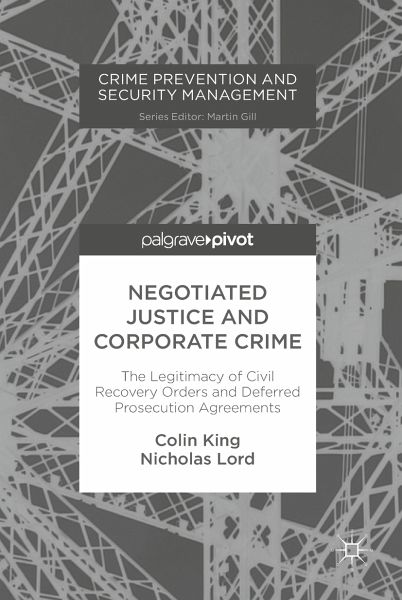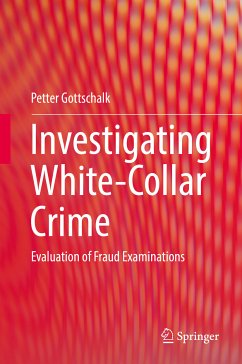
Negotiated Justice and Corporate Crime (eBook, PDF)
The Legitimacy of Civil Recovery Orders and Deferred Prosecution Agreements
Versandkostenfrei!
Sofort per Download lieferbar
44,95 €
inkl. MwSt.
Weitere Ausgaben:

PAYBACK Punkte
22 °P sammeln!
This book argues that there is a strong normative argument for using the criminal law as a primary response to corporate crime. In practice, however, corporate crimes are rarely dealt with through criminal sanctioning mechanisms. Rather, the preference - for both prosecutors and corporates - appears to be on negotiating out of the criminal process. Reflecting this emphasis on negotiation, this book examines the use of Civil Recovery Orders and Deferred Prosecution Agreements as responses to corporate crime, and discusses a variety of UK case studies. Drawing upon legal and criminological backg...
This book argues that there is a strong normative argument for using the criminal law as a primary response to corporate crime. In practice, however, corporate crimes are rarely dealt with through criminal sanctioning mechanisms. Rather, the preference - for both prosecutors and corporates - appears to be on negotiating out of the criminal process. Reflecting this emphasis on negotiation, this book examines the use of Civil Recovery Orders and Deferred Prosecution Agreements as responses to corporate crime, and discusses a variety of UK case studies. Drawing upon legal and criminological backgrounds, and with an emphasis on the conceptual frameworks of 'negotiated justice' and 'legitimacy', the authors examine the law, policy and practice of these enforcement responses. They offer an original, theoretically-informed analysis which is accessible to practitioners and researchers.
Dieser Download kann aus rechtlichen Gründen nur mit Rechnungsadresse in A, B, BG, CY, CZ, D, DK, EW, E, FIN, F, GR, HR, H, IRL, I, LT, L, LR, M, NL, PL, P, R, S, SLO, SK ausgeliefert werden.












